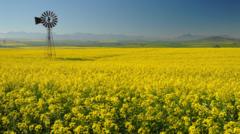In a significant legal move, the Democratic Alliance (DA) has formally challenged South Africa’s Expropriation Act, a controversial law that has ignited a dispute with US President Donald Trump. The Expropriation Act permits the government to seize private land without compensation under specific conditions. This legislation has faced fierce criticism, culminating in Trump’s decision to suspend foreign aid to South Africa, claiming that the government is already engaging in land confiscation.
The African National Congress (ANC), which heads the ruling coalition of 10 parties, has rejected Trump's assertions, characterizing them as a "campaign of misinformation" aimed at distorting the image of South Africa. The ANC, recently forced into a power-sharing arrangement after losing its parliamentary majority for the first time in 30 years during the 2019 elections, argues that Trump’s actions are unfounded and detrimental to the nation’s reputation.
The DA, South Africa’s second-largest party in the coalition, contends that the Expropriation Act violates constitutional protections against property seizure without compensation. They argue that no democratic state should possess the authority to expropriate land without offering just compensation. The DA claims that President Cyril Ramaphosa overlooked their warnings before enacting the law.
Land ownership remains a deeply emotional issue in South Africa, with historical ties to apartheid where black South Africans were systematically stripped of their land. The DA argues that the similar powers to seize land were used historically by the apartheid regime to displace indigenous peoples. They assert that safeguarding property rights for all citizens is essential to ensuring accountability and prevent the reemergence of unchecked government powers.
Amid these tensions, the ANC reiterated that no land would be taken without compensatory measures, emphasizing that any land acquisition efforts would only occur under exceptional circumstances and after exhausting all other options. Trump’s decision to freeze aid follows a claim that the US "cannot support the South African government’s commission of rights violations."
In addition to halting aid, the US has announced plans to assist in resettling South African farmers and their families who have faced displacement, showing a robust stance against the new policy. Meanwhile, President Ramaphosa has pledged to reach out to international partners to clarify the South African government's approach to land reform, aiming to mitigate growing concerns surrounding its implications for both the domestic population and foreign relations.





















